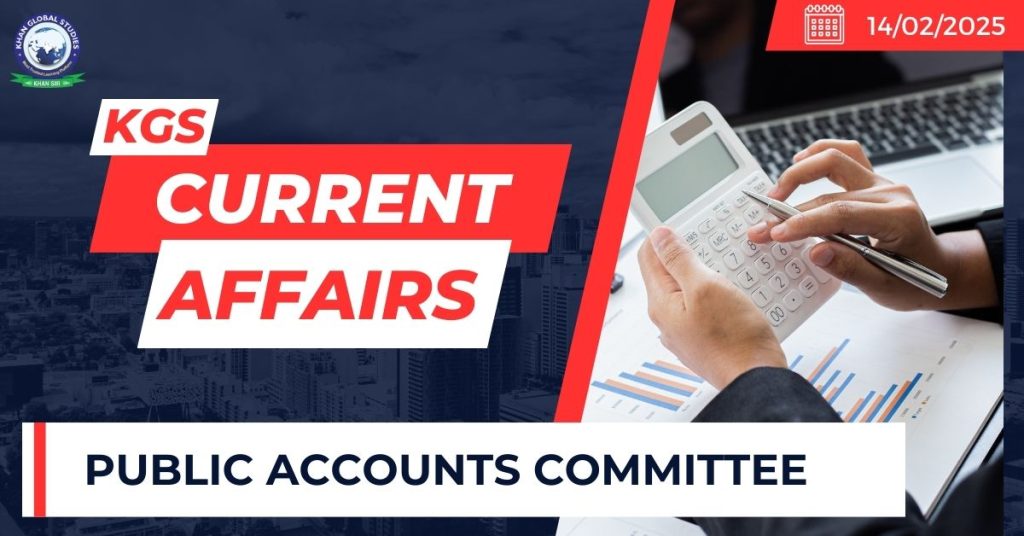Context
- The Public Accounts Committee of Parliament, chaired by K.C. Venugopal, recently directed the government to review the existing rules governing toll taxes on National Highways.
About Public Accounts Committee
- It is a committee of selected members of parliament, constituted by the Parliament of India, for the purpose of auditing the revenue and expenditure of the Government of India.
- It serves as a check on the government, especially with respect to its expenditure bill, and its primary function is to examine the audit report of the Comptroller and Auditor General (C&AG) after it is laid in Parliament.
- C&AG assists the committee during the course of the investigation.
- The main function of the committee is to ascertain whether the money granted by parliament has been spent by the government within the scope of the demand.
Genesis of the Public Accounts Committee
- It is one of the oldest Parliamentary Committees in India.
- From its inception in the year 1921 till early 1950, the Finance Member was appointed as the Chairperson of the Committee, and its secretarial functions were looked after by the Finance Department (later Ministry of Finance).
- With the coming into force of the Constitution of India on 26 January 1950, the Committee became a Parliamentary Committee under the control of the Speaker.
- Its secretarial functions were transferred to the Parliament Secretariat (now Lok Sabha Secretariat).
Public Accounts Committee Membership
- PAC consists of not more than twenty-two members, fifteen elected by Lok Sabha, and not more than seven members of Rajya Sabha.
- The members are elected every year from amongst its members of respective houses according to the principle of proportional representation by means of a single transferable vote.
- The term of office of the members is one year.
- The Chairperson of the Committee is appointed by the Speaker from amongst the members of the Committee from Lok Sabha.
- The Speaker, for the first time, appointed a Member of the Opposition as the Chairperson of the Committee for 1967-68. This practice has been continuing since then.
- A Minister is not elected a member of the Committee, and if a member, after his election to the Committee, is appointed a Minister, he ceases to be a member of the Committee from the date of such appointment.
Functions of the PAC:
- Examines Appropriation Accounts for Railways, Defence Services, Postal Services, and other Civil Ministries, along with the Reports of the Comptroller and Auditor-General (C&AG).
- Reviews C&AG Reports on Revenue Receipts.
- The Committee may also examine subjects related to public finances not specifically included in the Audit Reports.
- When scrutinizing Appropriation Accounts and C&AG Reports, the Committee ensures:
- The disbursed funds were legally available and properly applied for the intended service or purpose.
- Expenditure aligns with the governing authority.
- Re-appropriations follow the rules set by the competent authority.
- Ensures that money granted by Parliament is spent within the scope of the demand.
- Justifies any expenditure over or under the originally sanctioned amount.
- If funds are spent beyond the approved amount, the Committee examines the circumstances and provides recommendations.

